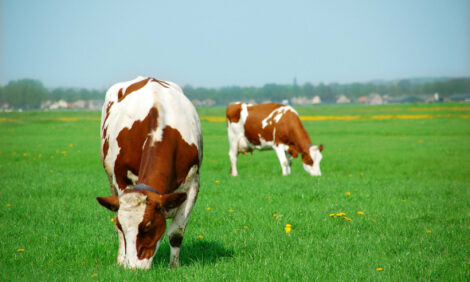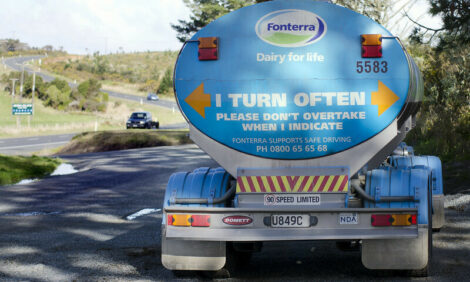



Food Safety Body Recommends Heating Raw Milk
FINLAND - Finnish Food Safety Authority Evira has called for raw milk only to be used in cooked products, because of the risks from Yersinia bacteria.The food safety body says that a new study shows that the bacteria are able to multiply at refrigeration temperatures within just a couple of days to a level, where they can cause food poisoning even to healthy people.
Evira said the study results show that Yersinia pseudotuberculosis bacteria are able to multiply at refrigeration temperatures to an illness-causing level surprisingly quickly, in just 2–3 days, even when the incidence of bacteria in raw milk is originally low.
Evira investigated in collaboration with the National Institute for Health and Welfare (THL) the bacteria levels ingested by the affected persons in the food poisoning outbreak caused by raw milk in Eastern Uusimaa and the Helsinki region in the spring of 2014.
It was the most widespread outbreak caused by raw milk so far in Finland, with a total of 55 infected people.
The study focused on the amount of raw milk used by the affected people and the reproduction rate of Yersinia bacteria in raw milk.
The illness-causing dose was found to be smaller than previously estimated.
The study showed that in addition to risk groups, also people with no underlying health problems can contract food poisoning with the bacteria levels found in the analysed raw milk.
The shelf life and the use-by date of foods are determined on the basis of shelf life studies carried out in a laboratory.
The amount of bacteria resulting in spoiling of the food does not always go hand in hand with the amount of bacteria that are pathogenic to humans.
This means that in some high-risk foods, such as raw milk, the level of pathogenic bacteria may increase to an illness-causing level already during the permissible shelf life.
Only the largest producers of raw milk are required to take samples of the milk they produce as well as faecal samples from cows.
The samples are analysed for the most dangerous food poisoning bacteria found in milk.
Analyses for less common pathogens, such as Yersinia, are not carried out on a regular basis.
Evira said that good milking hygiene is the best method for preventing the incidence of Yersinia in raw milk.
The food safety authority added that raw milk is always a high-risk product, as it is not pasteurised to destroy bacteria contained in it.
Good milking hygiene and an unbroken cold storage chain will reduce, but not eliminate microbiological risks.
Unheated raw milk is particularly dangerous for children, old people, pregnant women and persons with compromised resistance to infections due to underlying health problems.
For this reason, Evira has recommended that raw milk should be used as soon as possible and only in cooked foods.
TheCattleSite News Desk


